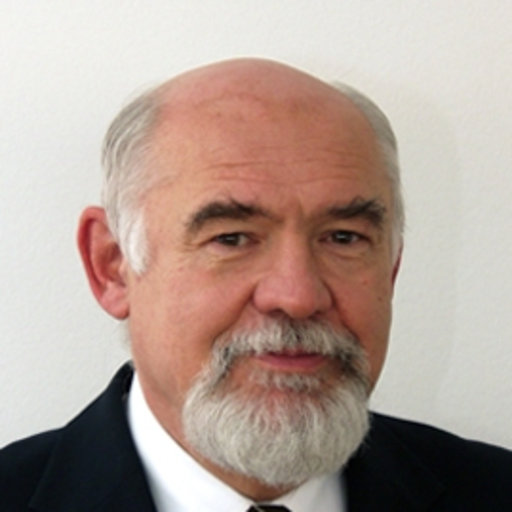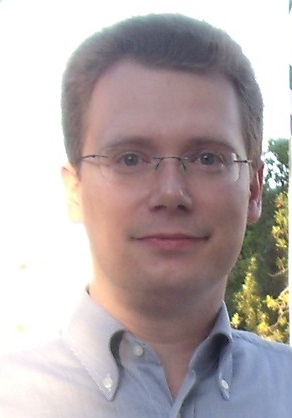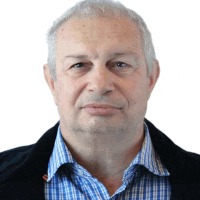







 and
and 
WSEAS Transactions on Business and Economics
Editors-in-Chief: Prof. Michael N. Katehakis

WSEAS Transactions on Environment and Development
Editors-in-Chief: Prof. Vincenzo Niola



We anticipate more than 150 participants
We offer Journal Publications in ISI (Web of Science), EI Compendex and Scopus Indexed Journals after the conference.
We anticipate more than 10 participants
Chair
Prof. Vincenzo Niola,
Departement of Mechanical Engineering for Energetics,
University of Naples "Federico II", Naples,
Italy
Prof. Claudio Guarnaccia,
University of Salerno,
Italy
Prof. Cho W. Solomon To,
ASME Fellow,
University of Nebraska,
Lincoln, Nebraska,
USA
Prof. Desineni Subbaram Naidu,
PhD, Life Fellow IEEE
Minnesota Power Jack Rowe Endowed Chair
Professor of Electrical Engineering, University of Minnesota Duluth (UMD)
273 MWAH, 1023 University Drive, Duluth, MN 55812-3009, USA
International Program Committee
Prof. Bimal K. Bose, D.Sc.(Honoris Causa), Life Fellow, IEEE
Condra Chair Professor/Emeritus in Power Electronics
Member, US National Academy of Engineering
610 Min Kao, 1520 Middle Drive
Department of Electrical Engineering and Computer Science
University of Tennessee
Knoxville, TN 37996-2100, USA
E-mail: bbose@tennessee.edu
Prof. Jun Zhang, Deputy Director,
College of Chemistry and Chemical Engineering,
Inner Mongolia University, Hohhot 010021,
P. R. China
Prof. E.Baltas,
National Technical University of Athens,
Greece
Prof. Vladimir Sokolov,
University of Karlsruhe, Karlsruhe,
Germany
Prof. joseph Quartieri,
University of Salerno,
Italy
Prof. Rui Pedro
Juliao, Universidade Nova De Lisboa, Lisbon,
Portugal
Prof. Shoji Arai,
Kanazawa University, Kanazawa, Ishikawa Prefecture,
Japan
Prof. A. Stamou,
National Technical University of Athens,
Greece
Prof. Ivan Kazachkov,
Nizhyn Mykola Gogol State University,
Nizhyn, Chernihiv Oblast,
Ukraine
Prof. Ioannis Doltsinis,
Faculty of Aerospace Engineering and Geodesy,
University of Stuttgart, Stuttgart,
Germany
Prof. Lucjan Setlak,
Polish Air Force University, Deblin,
Poland
Prof. Hyung Hee Cho,
ASME Fellow,
Yonsei University (and National Acamedy of Engineering of Korea),
Korea
Prof. Pierre Borne,
IEEE Life Fellow
IEEE France Section Past Chair
IEEE/SMC Society Past Chair
Laboratoire CRIStAL
Ecole Centrale de Lille
Cité Scientifique - CS20048
59651 Villeneuve d'Ascq
France
E-mail: pierre.borne@centralelille.fr
Prof. Marcin Marek Kaminski,
Technical University of Lodz
Al. Politechniki 6, 90-924 Lodz, Poland
E-mail: marcin.kaminski@p.lodz.pl
Prof. Ravi P. Agarwal,
Department of Mathematics
Texas A&M University-Kingsville
700 University Blvd., MSC 172
Kingsville, Texas 78363-8202, USA
E-mail: Ravi.Agarwal@tamuk.edu
Prof. Khalil Ezzinbi,
The African Academy of Sciences Fellow
Cadi Ayyad University
Faculty of Sciences Semlalia
Department of Mathematics
B.P. 2390, Marrakesh, Morocco
E-mail: ezzinbi@uca.ac.ma
Prof. Manuel G. Gericota,
Instituto Superior de Engenharia do Porto
Departamento de Engenharia Electrotecnica
Rua Dr. Antonio Bernardino de Almeida, 431
4200-072 Port, Portugal
E-mail: mgg@isep.ipp.pt
Prof. Tadeusz Kaczorek,
IEEE Fellow, Warsaw University of Technology,
Warsaw, Poland
E-mail: kaczorek@ee.pw.edu.pl
Prof. ZhuangJian Liu
Institute of High Performance Computing
1 Fusionopolis Way, #16-16 Connexis,
North Tower, 138632, Singapore
E-mail: liuzj@ihpc.a-star.edu.sg
Prof. Guennadi A. Kouzaev,
Department of Electronic Systems
Norwegian University of Science and Technology - NTNU
Høgskoleringen 1, 7491 Trondheim, Norway
E-mail: guennadi.kouzaev@ntnu.no
Prof. Dr. El-Sayed,
Faculty of Science,
Alexandria University, Alexandria, Egypt
E-mail: amasayed@alexu.edu.eg
Prof. Martin Bohner,
106 Rolla Building
Curators' Distinguished Professor of Mathematics and Statistics
Department of Mathematics and Statistics
Missouri University of Science and Technology
E-mail: bohner@mst.edu
Prof.Reggie Davidrajuh,
Electrical & Computer Engineering
University of Stavanger, Norway
E-mail: reggie.davidrajuh@uis.no
Prof. Juho Mäkiö,
Faculty of Technology
University of Applied Sciences Emden/Leer
Room P3, Constantiaplatz 4, 26723 Emden
Germany
E-mail: juho.maekioe@hs-emden-leer.de
Prof. Yixiang Chen,
East China Normal University Chenyixiang
Shanghai City, China
E-mail: yxchen@sei.ecnu.edu.cn
Prof. H. M. Srivastava,
University of Victoria,
Victoria, British Columbia V8W 3R4,
Canada
E-mail: harimsri@uvic.ca
Prof. Jyh-Jier Ho
National Taiwan Ocean University (NTOU)
Zhongzheng District, Keelung, Taiwan
E-mail: jackho@mail.ntou.edu.tw


The Topics of our conference are
CIVIL ENGINEERING: Structural engineering,
Construction engineering,
Earthquake engineering,
Environmental engineering,
Water resources engineering,
Materials science and engineering,
Coastal engineering,
Geotechnical engineering,
Surveying,
Transportation engineering,
Municipal or urban engineering,
Forensic engineering,
Control engineering,
Sustainable Development,
INDUSTRIAL ENGINEERING: Operations research & Optimization techniques, Engineering economics, Supply chain management & Logistics,
System Dynamics & Policy Planning. System Analysis & Techniques, Manufacturing systems/Manufacturing engineering, Human factors engineering & Ergonomics (Safety engineering),
Production planning and control,
Management Sciences, Computer aided manufacturing, Facilities design & Work space design, health care, Quality Engineering, Reliability Engineering & Life Testing, Statistical process control or Quality control, Time and motion study, Predetermined motion time system and Computer use for IE, Operations management, Corporate planning, Productivity improvement, Materials management, Robotics. Salaries and workforce statistics Environment, Health and Safety, manufacturing engineering, Ergonomics / Human factors engineering, Living wage, List of production topics, Methods engineering, Nutrient systems, Operations research, Overall Equipment Effectiveness, Product design / Industrial design, Production engineering, Quality assurance, Reverse engineering, Safety engineering, Occupational Safety and Health, Sales process engineering, Scientific management, Sociotechnical systems, Statistical process control, Mathematics in Industrial Engineering, Software Production for Industrial Engineering, Energy, Power Systems, Ecology, Environmental Science, Development, Economics, Others
MECHANICAL ENGINEERING: Aerodynamics, Fluid Dynamics, Compressible Flows, Computational Mechanics, Biomechanics, Automotive Engineering, Heat and Mass Transfer, Nanomaterial Engineering, Plasticity Mechanics, Fracture, Geomechanics, Multibody Dynamics, Nonlinear Dynamics, Structural Dynamics, Vibrations, Acoustics, Noise Control, Material Engineering, Transport Phenomena, Manufacturing Process, Mechatronics, Others...
MATERIALS: Inorganic Materials, Metallic Materials, Organic Materials, Composite Materials, Macroscopic Properties of Materials, Failure Analysis, Strength of Materials, Condensed Matter Physics, Materials Physics, Refractory Materials, Functionally Graded Materials, Materials in Industry, Biomaterials, Bioplastics, Carbon, Ceramics, Ceramography, Composite materials, Alloys, Glass and Glass science, Metals, Nanomaterials, Polymers, Polymer engineering, Refractory, Electronic and magnetic materials, Semiconductors, Thin Films, Functionally Graded Materials, Crystallography, Forensic engineering, Forensic materials engineering, Materials characterization, Raman spectroscopy, energy-dispersive spectroscopy (EDS), chromatography, thermal analysis, electron microscope analysis, Metallography, Mineralogy, Metallurgy (extraction, microstructure and processing), Microtechnology, Microelectromechanical systems (MEMS), Molecular design software Molecular modelling, Nanomaterials, Nanotechnology, molecularly engineered materials, Rheology, granular materials, Surface science/catalysis, interactions and structures between solid-gas solid-liquid or solid-solid interfaces, Textile reinforced materials, Transparent materials, Tribology, Others...
The International Conference on Civil, Industrial and Mechanical Engineering and Materials (CIMEMA) is committed to maintaining high standards through a rigorous peer-review together with strict ethical policies. Any infringements of professional ethical codes, such as plagiarism, fraudulent use of data, bogus claims of authorship, should be taken very seriously by the editors with zero tolerance. The International Conference on Civil, Industrial and Mechanical Engineering and Materials (CIMEMA) follows the Code of Conduct of the Committee on Publication Ethics (COPE), and follows the COPE Flowcharts for Resolving Cases of Suspected Misconduct.
The submitted manuscript should not have been previously published in any form and must not be currently under consideration for publication elsewhere.

Terms of Collaboration
1). COPYRIGHT: By submitting a paper the author understands that its copyright is transferred to the International Conference on Civil, Industrial and Mechanical Engineering and Materials (CIMEMA).
The International Conference on Civil, Industrial and Mechanical Engineering and Materials (CIMEMA) may publish it at their discretion and the author may not resubmit it anywhere else. Based on this copyright transfer of the paper,
the International Conference on Civil, Industrial and Mechanical Engineering and Materials (CIMEMA) is entitled to publish the paper ir not.
2). After the Review process is completed by the Assoc. Editor and the Reviewers, it is no longer allowed for the authors to withdraw their paper.
3). PEER REVIEW: All submitted papers are subject to strict peer-review process by at least \ three international reviewers that are experts in the area of the particular paper. The factors that are taken into account in review are relevance, soundness, significance, originality, readability and language. The possible decisions include acceptance, acceptance with revisions, or rejection.
4). If authors are encouraged to revise and resubmit a submission, there is no guarantee that the revised submission will be accepted.
5). Rejected articles will not be re-reviewed.
6). Articles may be rejected without review if they are obviously not suitable for publication.
7). The paper acceptance is constrained by such legal requirements as shall then be in force regarding libel, copyright infringement and plagiarism.
8). The reviewers evaluate manuscripts for their intellectual content without regard to race, gender, sexual orientation, religious belief, ethnic origin, citizenship, or political philosophy of the authors.
9). The staff must not disclose any information about a submitted manuscript to anyone other than the corresponding author, reviewers, other editorial advisers, and the publisher, as appropriate.
10). Reviews should be conducted objectively. Personal criticism of the author is inappropriate. Referees should express their views clearly with supporting arguments.
11). Peer review assists the publisher in making editorial decisions and through the editorial communications with the experts form the scientific board ant the author may also assist the author in improving the paper.
12). Manuscripts received for review are treated as confidential documents and are reviewed by anonymous staff.
13). A reviewer should also call to the publisher's attention any substantial similarity or overlap between the manuscript under consideration and any other published paper of which they have personal knowledge.
14). Authors of contributions and studies research should present an accurate account of the work performed as well as an objective discussion of its significance.
15). A paper should contain sufficient detail and references to permit others to replicate the work. Fraudulent or knowingly inaccurate statements constitute unethical behavior and are unacceptable.
16). The authors should ensure that they have written entirely original works, and if the authors have used the work and/or words of others that this has been appropriately cited or quoted.
17). Submitting the same manuscript to more than one publication concurrently constitutes unethical publishing behaviour and is unacceptable.
18). Authorship should be limited to those who have made a significant contribution to the conception, design, execution, or interpretation of the reported study.
19). All sources of financial support for the project should be disclosed.
20). The International Conference on Civil, Industrial and Mechanical Engineering and Materials (CIMEMA) does not require from the authors to submit any copyright form. An author can withdraw a paper until 30 days after the paper submission. After these 30 days no withdrawal is allowed.

Óbuda University, Budapest, Hungary

University of West Attica, Greece

National and Kapodistrian University of Athens (NKUA), Dept. General, Greece
Sights of the area:
Bern, Switzerland
Conference Venue:
A1 Hotel Grauholz AG
Autobahn A1
CH-3063 Ittigen, Bern
Tel.: +41 (0)31 915 12 12
Fax.: +41 (0)31 915 12 13
https://www.a1grauholz.ch
Switzerland, officially the Swiss Confederation, is a landlocked country located at the confluence of Western, Central and Southern Europe. It is bordered by Italy to the south, France to the west, Germany to the north and Austria and Liechtenstein to the east. Switzerland is geographically divided among the Swiss Plateau, the Alps and the Jura; the Alps occupy the greater part of the territory, whereas the Swiss population of approximately 8.7 million is concentrated mostly on the plateau, where the largest cities and economic centres are located, including Zurich, Geneva and Basel. Switzerland originates from the Old Swiss Confederacy established in the Late Middle Ages following a series of military successes against Austria and Burgundy. The Federal Charter of 1291 is considered the country's founding document. Since the Reformation of the 16th century, Switzerland has maintained a policy of armed neutrality. Swiss independence from the Holy Roman Empire was formally recognised in the Peace of Westphalia in 1648. Switzerland has not fought an international war since 1815. It joined the United Nations only in 2002, though it pursues an active foreign policy, including participation in frequent peace-building processes worldwide.[17] Switzerland is the birthplace of the Red Cross, one of the world's oldest and best-known humanitarian organisations, and hosts the headquarters or offices of most major international institutions, including the WTO, the WHO, the ILO, FIFA, and the United Nations. It is a founding member of the European Free Trade Association (EFTA), but not part of the European Union (EU), the European Economic Area, or the Eurozone; however, it participates in the European single market and the Schengen Area through bilateral treaties.
More Details
https://en.wikipedia.org/wiki/Switzerland
How to Reach By Air
Bern's international airport Bern-Belp is rather small and is not too far from the main city.
The airport serves direct flights from several European destinations such as Italy and Spain and other seasonal destinations as well. Once you reach the airport,
you can use public transport to reach the city. You can use the airport bus to reach the Belp train station, and from there, you can take an S-Bahn to reach the main
Bern station. There are taxis, buses and trains that take you to the city.
If you are travelling to Bern via Zurich or Geneva,
then there are direct trains that connect you from the airports of either city.
From Zurich Airport, it takes 75 minutes to reach Bern and from Geneva Airport, it takes around 2 hours to reach Bern.
How to Reach By Road
The road network connecting Bern to many of Switzerland's important cities such as Zurich and Geneva is excellent. The highways are well-developed, and the network is rather extensive with road links to several cities. The journey itself is quite magnificent and memorable. Do remember that if you're arriving by car to Bern, it's a good idea to leave it in one of the many multi-story garages and explore the city using public transport or by foot. The OId Town especially is car-free.
How to Reach By Rail
As with other Swiss cities, the train network in Bern is very efficient and fast.
Bern is connected to cities like Geneva, Basel and Zurich by several trains on the Swiss Federal Railway station.
There are also express trains that run every hour and take you to places such as Interlaken, Lucerne or Brig.
Several European destinations are also covered by train from Bern. If you are planning to stay in Bern for a few days,
then it's a good idea to get the Swiss Travel Pass which has affordable tickets that can be used across various modes of transport.
Switzerland is known for its excellent public transport system, helping people travel to different parts of the city with ease. There are various ways in which the public transport system helps visitors and the Swiss Travel Pass is one of the most excellent investments one can make while travelling in Bern. It allows you to travel on buses, trains, trams and even the S-Bahn with ease. Here are some of the ways to get around the city.
By Taxis
Taxis are available in Bern, but they are expensive and since the public transport is so good, they are not used as often. There are taxi stands near the station and in the city. They can be hired by calling the taxi company number.
By Train
Bern has an excellent train network, the S-Bahn rail system which will take you to several places in far flung areas of the city including the suburbs as well as nearby cities. The S-Bahn can be accessed using the Bern Ticket.
By Tram
There are several local tram services in Bern and to know their details and their schedules, do check the website. Once you activate the Bern Ticket using the Bern App on your phone, you can use it to travel to several places in Bern for free.
By Bus
Bern has a wide bus network and the Bern Ticket is applicable even here. If you have a hotel reservation to stay in Bern, you can use it to even travel from the airport to the city for free and even get around locally without any further costs.
By Bicycle
Bern has a huge number of e-bikes which can be taken for rent and there are at least 70 stations from where they can be picked up. Most of these can be used by installing an app on your smartphone. To use the e-bikes, you need to have a smartphone and a driving license, and you have to register for a subscription. The bikes come with a helmet and you have to wear it as it's illegal to use bikes without helmets.
By Foot
Bern is a small city and most of it is easily accessible by foot. Most of the places like shopping areas and restaurants can be reached by walking around. The Old Town is in fact best explored on foot as there's so much to see and experience here. If you are planning to visit some distant places outside the city centre such as Guisanplatz, then don't rely on your walking capabilities however, and opt for the tram.
By Car
While using a car in Bern is not a problem, do remember that there are hardly any free parking spaces and you will have to shell out quite a bit to use the parking spots near the city centre. This is why getting around in Bern by car is not recommended. If you have come to the city by car, it's best to park the car in a 'park and ride' centre and use public transport to travel around the city.
https://en.wikipedia.org/wiki/Bern




Format of your Paper: